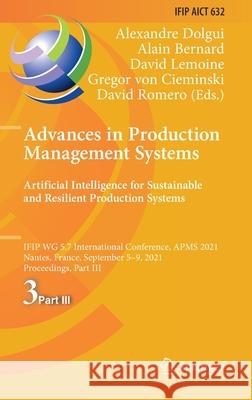Advances in Production Management Systems. Artificial Intelligence for Sustainable and Resilient Production Systems: Ifip Wg 5.7 International Confere » książka
topmenu
Advances in Production Management Systems. Artificial Intelligence for Sustainable and Resilient Production Systems: Ifip Wg 5.7 International Confere
ISBN-13: 9783030859053 / Angielski / Twarda / 2021 / 736 str.
Advances in Production Management Systems. Artificial Intelligence for Sustainable and Resilient Production Systems: Ifip Wg 5.7 International Confere
ISBN-13: 9783030859053 / Angielski / Twarda / 2021 / 736 str.
cena 603,81
(netto: 575,06 VAT: 5%)
Najniższa cena z 30 dni: 578,30
(netto: 575,06 VAT: 5%)
Najniższa cena z 30 dni: 578,30
Termin realizacji zamówienia:
ok. 22 dni roboczych.
ok. 22 dni roboczych.
Darmowa dostawa!
Kategorie:
Kategorie BISAC:
Wydawca:
Springer
Seria wydawnicza:
Język:
Angielski
ISBN-13:
9783030859053
Rok wydania:
2021
Wydanie:
2021
Numer serii:
000385858
Ilość stron:
736
Waga:
1.19 kg
Wymiary:
23.39 x 15.6 x 3.96
Oprawa:
Twarda
Wolumenów:
01
Dodatkowe informacje:
Komentarz
Wydanie ilustrowane
Wydanie ilustrowane











